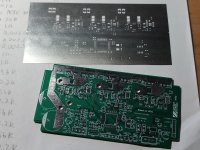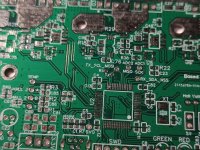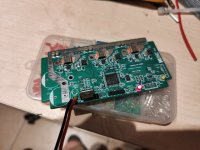mxlemming
100 kW
- Joined
- Jul 17, 2020
- Messages
- 1,122
Why would you not use the smt service? That's mad. It takes a tiny fraction of the time to add the jlcpcb part number as it does to search mouser, add to basket, open the bag and solder it... And you do away with the hassle of dry joints and... 5 hours of soldering... etc. For 5+ PCBs...
The price per part of also cheaper from jlc mounted than you can get from mouser on a tape.
You'd have to be a masochist to solder something yourself that jlc has.
The price per part of also cheaper from jlc mounted than you can get from mouser on a tape.
You'd have to be a masochist to solder something yourself that jlc has.




